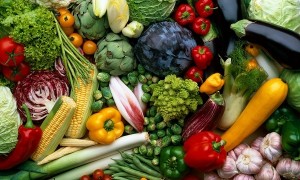Variety of Nutrients Essential for Vegans
Following a vegan diet, which excludes all meat and animal products, can help lower the incidence of obesity, heart disease and type 2 diabetes. However, vegans may be at an increased risk for nutrient deficiencies, including vitamin B12, iron, calcium, vitamin D, omega-3 fatty acids and protein, according to a clinical review in The Journal of the American Osteopathic Association.
“The body needs certain nutrients, proteins and vitamins to do its best job. When these ‘nutritional building blocks’ are missing from the diet, problems can develop, including fatigue, pain and tingling in the limbs, and even an increased risk of breaking a bone,” says Joel Cooper, DO, an osteopathic family physician in Phoenix and a semi-vegetarian.
Focusing on preventive care, doctors of osteopathic medicine, or DOs, look beyond your symptoms to consider how environmental and lifestyle factors impact your health. They are trained to listen and partner with you to help you not only get healthy, but stay well.
Vegan sources of nutrients
Be sure to let your doctor know if you are following a vegan diet so your nutritional intake can be monitored.
“Your doctor can order blood tests to help ensure that you don’t have deficiencies of vitamin B12, iron, calcium, vitamin D, omega-3 fatty acids or protein,” Dr. Cooper says.
Besides taking supplements, the JAOA review suggests the following foods to get essential nutrients:
- Vitamin B12: Cereal, fortified soy and rice milk.
- Calcium: Collard greens, fortified plant milks and juices.
- Vitamin D: Fortified plant milk, ultraviolet B-exposed mushrooms.
- Omega-3 fatty acids: Algae, chia, flaxseed, walnuts.
- Iron: Spinach, collard greens, lentils, soybeans, tofu.
- Essential amino acids: Soy, quinoa, buckwheat, hempseed, chia, legumes.
If you keep your diet varied, you will run much less risk of developing any particular nutritional deficiency.
Reducing dietary deficiencies risks
Vegans must be careful to get enough of the foods that can help prevent nutritional deficiencies. Particularly at risk are children, pregnant women, and new moms/breastfeeding mothers.
“Just as no two people are identical, no two diets are identical either – not even strictly vegan diets. So what you actually consumed must be broken down and analyzed to determine where potential nutritional deficiencies may occur,” Dr. Cooper says.
“Your physician may wish to refer you to a registered dietitian who can work with you in developing a vegan meal plan that will be both nutritious and delicious,” he adds.
Read the JAOA clinical review to learn more.
